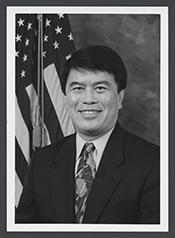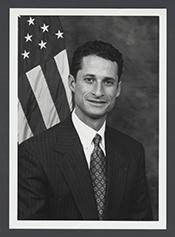0
Railroad Retirement and Survivors' Improvement Act of 2001
1/17/2023, 12:03 AM
Congressional Summary of HR 10
Increases: (1) annual dollar Individual Retirement Account (IRA) contribution limits; and (2) benefit and contribution limits, with indexes for inflation.
Revises requirements relating to: (1) plan loans for subchapter S owners, partners, and sole proprietors; and (2) specified top-heavy rules. Provides that elective deferrals shall not be taken into account for purposes of limits on certain plan contributions. Repeals specified coordination requirements for deferred compensation plans of State and local governments and tax-exempt organizations. Revises certain deduction limits for stock bonus and profit sharing trusts and for defined contribution plans. Provides for optional treatment of elective deferrals as after-tax contributions.
Allows individuals age 50 or older to make additional contributions to an applicable employer plan (section 401(k) or similar plan). Sets forth requirements relating to equitable treatment for contributions of employees to defined contribution plans. Provides for faster vesting of certain employer matching contributions under the Code and ERISA. Revises: (1) minimum distribution rules; (2) requirements relating to tax treatment of division of section 457 plan benefits upon divorce; and (3) provisions for safe harbor relief for hardship withdrawals from 401(k) plans.
Permits, under certain conditions, rollovers: (1) from and to various types of plans; (2) of IRAs into workplace retirement plans; and (3) of after-tax contributions in an exempt trust. Sets forth a hardship exception to the 60-day rule. Sets forth requirements for treatment of forms of distribution available under transferor and transferee plans under the Code and ERISA. Revises restrictions on distributions, including the same desk exception. Allows trustee-to-trustee transfers to purchase permissive service credit with respect to governmental defined benefit plans. Allows employers to disregard rollovers for purposes of cash-out amounts, under retirement plan provisions of the Code. Revises minimum distribution and inclusion requirements for section 457 plans.
Repeals, for plan years beginning in 2004 and following years, the current liability full funding limit under the Code and ERISA. Revises maximum contribution deduction rules, and applies them to all defined benefit plans. Allows an employer, in determining the amount of nondeductible contributions for any taxable year, to elect not to take into account any contributions to a defined benefit plan except to the extent they exceed the full-funding limitation. Establishes an excise tax for the failure of a defined benefit plan or an individual account plan (except governmental, church, and other specified plans) subject to minimum funding standards to meet specified notice requirements, under the Code and ERISA, for plan amendments which significantly reduce benefit accruals. Makes certain compensation limitations for defined benefit plans inapplicable to governmental and multiemployer plans. Prohibits combining or aggregating a multiemployer plan with any other plan maintained by the employer for the purpose of applying such limitations. Amends the Taxpayer Relief Act of 1997 to protect the investment of employee contributions to 401(k) plans by providing that specified requirements apply to elective deferrals for plan years beginning after December 31, 1998. Requires that pension benefit statements be furnished annually (once every three years for defined benefit plans) or on request. Establishes an excise tax for certain prohibited allocations of stock in an S corporation ESOP.
Revises Code and ERISA requirements relating to timing of plan valuations. Allows applicable dividends of ESOPs to be reinvested without loss of dividend deduction. Repeals a transition rule relating to certain highly compensated employees under the Tax Reform Act of 1986. Directs the Secretary to modify specified regulations with respect to certain plan participation by employees of tax-exempt entities. Treats the provision of certain retirement planning services by an employer for an employee as a de minimis fringe benefit to the extent it is not treated as a working condition fringe. Directs the Secretary of the Treasury to provide simplified annual filing requirements for retirement plans with assets below a specified amount, if they cover: (1) one participant (an owner and spouse); or (2) fewer than 25 employees. Directs the Secretary to continue to update and improve the Employee Plans Compliance Resolution System, or any successor program. Repeals a multiple use test. Allows certain alternative ways of satisfying nondiscrimination, coverage, and line of business rules. Exempts plans maintained by any governmental entity from certain nondiscrimination rules. Directs the Secretary to modify specified regulations relating to the notice and consent period regarding distributions.
Revises ERISA provisions relating to: (1) annual report dissemination; (2) the National Summit on Retirement Savings; (3) missing participants; (4) Pension Benefit Guaranty Corporation (PBGC) reduction of premiums for new plans of small employers and of additional premiums for new and small plans; (5) PBGC authority to pay interest on premium overpayment refunds; (6) substantial owner benefits in terminated plans; (7) civil penalties for breach of fiduciary responsibility; and (8) benefit suspension notices.
Prescribes time requirements for plan amendments or annuity contract amendments.





